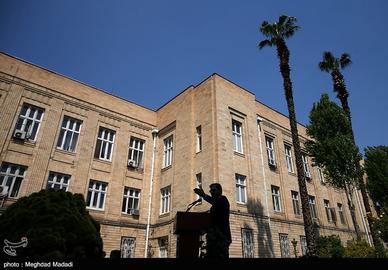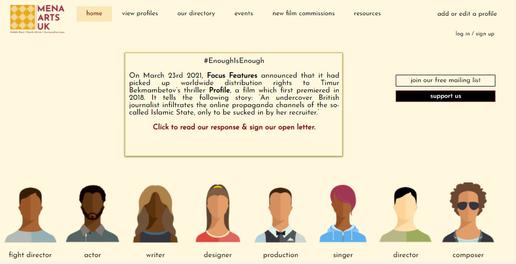The second round of talks between Iran and the United States has drawn to a close in Vienna. The aim of the talks, which were conducted through intermediaries, was the potential revival of the Joint Comprehensive Plan of Action (JCPOA), but just how explicit Tehran was in its demands and conditions has yet to be revealed.
Iran has said it will only revive the JCPOA on one condition: all sanctions imposed on the country must be lifted. If this is implemented, officials say, Iran will once again comply with the full obligations set out under the JCPOA agreement. A recent detailed report published by Iran’s Parliamentary Research Center sets out strategies to confirm these conditions are met.
Media outlets have published contradictory reports on Iran-US talks in Vienna. In Iran, factions opposed to the talks taking place at all have tried to block any conclusions on the matter, at least before the Iranian presidential election, which is scheduled for June.
The majority of Iranian media, from the state broadcaster to the media affiliated with the governing institutions, report on the matter on a daily basis, including wide-ranging opinion pieces for and against the deal and the process around it.
Unsurprisingly, a particularly popular argument is that the JCPOA has not only not fulfilled the demands and needs of the Islamic Republic, but has also dismantled the country’s nuclear program of the regime. This particular argument against the JCPOA says the deal does not afford enough privileges to justify the Islamic Republic entering into negotiations with the West and the United States once again.
Conservative-dominated Iranian parliament is one of the most prominent critics of the talks: its research center has published at least four reports in the past month pointing out Tehran's terms and conditions for reviving the JCPOA agreement. All of them put sanctions at the heart of their arguments.
The latest report, "Verification Indicators for the Elimination of Sanctions in the Fields of Energy, Industry and Aviation Technology" published on April 13, which is split into three chapters, sets out how sanctions should be lifted in the three areas of energy, industry, and aviation technology. These approaches should be reviewed over a period of between three and six months, the report says.
Energy Sanctions
In the chapter on energy, the Research Center outlines the negative impact sanctions have had on the oil, gas and electricity industries, and the resulting damage to the Iranian economy over a number of years. The lifting of sanctions on Iranian oil and gas should be focused on the restrictions that affect export, finance, supply of goods, and production and development.
The report says Iranian consumers should be in a position to buy oil without hesitation or concern and that annual contracts between other countries and Iran should resume.
The reports’ authors called for verification and confirmation that barriers blocking the transfer of oil money from buyers would be lifted, as well as the lifting of sanctions on international transactions with Iran's shipping and shipbuilding sectors and their ports, and on Iran's oil export insurance.
Regarding monetary, banking and services related to oil exports, the report calls for a verification of the currency transfer system from international bases to the Iranian Central Bank and financial institutions over a period of between three and six months.
Regarding the supply of goods, equipment and technical knowledge required by the oil industry, the Research Center report also demands verification and confirmation of a range of scenarios, including ensuring the ease of opening bank letters of credit [LCs] in order to purchase, transfer funds and transport goods and insurance.
"Contracts with foreign investment or technical engineering companies should be adjusted so that they cannot leave the country easily if sanctions are reinstated," the report’s section on the production, development and investment of the oil and gas industry says.
The Parliamentary Research Center also calls for confirmation that sanctions on the electricity sector will be lifted. Facilitating contracts for the purchase of items and equipment for the electricity industry, the possibility of opening a bank LC for all relevant stakeholders in the electricity industry, the facilitation of the provision of bank guarantees and concluding contracts for the export of electricity are all highlighted in the report.
Fact-checking the Lifting of Sanctions on Industry
The report refers specifically to the petrochemical sector, and presents a fact-finding process in four sections: export markets, financing, equipment and technical knowledge, and support services.
In the export markets sector, the report plots out Iran’s stable return to its position as an importer of petrochemical products and the development of a framework for long-term purchase contracts.
In the financing and investment sector, improving Iran's position in the credit risk index, improving Iran's ranking by the world's financial and credit institutions, and establishing a credit line to finance production projects in Iran have been set out as mandatory verification criteria.
Regarding technical knowledge, equipment and catalysts fields, the research center also urges governments to issue guarantees and finalize co-production contracts and raises the possibility of importing parts and waiving the requirement of defined licenses.
The report also lists examples of verification and testing in the petrochemical industry support services sector: a revert to pre-sanctions conditions, the finalizing of contracts with world-renowned insurance companies, the establishment of a mechanism for cooperation with international technical inspection companies, and direct sales and transportation of petrochemical products.
The effect the lifting of sanctions would have on the automotive industry is also discussed in the report, which calls for long-term contracts with the world's largest automakers and the establishment of credit to finance production projects in Iran.
Lifting Sanctions on Aviation Technology
In the report’s section on aviation technology, the Parliamentary Research Center calls for a confirmation that sanctions will be lifted with regard to aircraft and parts supply, maintenance, and public aviation.
According to the authors, Iran should be able to purchase the desired number of foreign aircraft directly and without intermediaries in accordance with the protocols of global trade, and not bounded by the limitations of the US’ Office of Foreign Assets Control licenses.
"The lifting of sanctions on repair, maintenance and support in any form, including the supply of parts, aircraft repair and overhaul of aircraft abroad, as well as the provision of equipment for airport operations and airport flight checks, among other things, must be verified to be true,” the report states.
At the end of the detailed report, the Parliamentary Research Center states that, in assessing the verification measures used to lift sanctions, the countries signed up to the JCPOA — the United Kingdom, France, China, Russia, Germany, and the United States if it rejoins — must demonstrate their commitment by ensuring the process becomes operational within an acceptable time frame and with minimal administrative and legal complexities impeding the process.
These demands and conditions form the backbone of the report, as well as the three previous reports produced by the Parliamentary Research Center.
At this point, however, it is not clear whether these demands and conditions were set out and reiterated by the Iranian negotiating team during the recent Vienna talks. It is not clear what the Western negotiating parties, especially the United States, think about these very specific term set out by the research group and the authors of the report.
Related coverage:
Top Official Admits Ghasem Soleimani’s Role in Circumventing Sanctions
Citizen Journalist Report: Unemployment, High Prices and a Chaotic Economy
Fact Check: Have Sanctions Shifted Iran to a Knowledge-Based Economy?
visit the accountability section
In this section of Iran Wire, you can contact the officials and launch your campaign for various problems


























comments